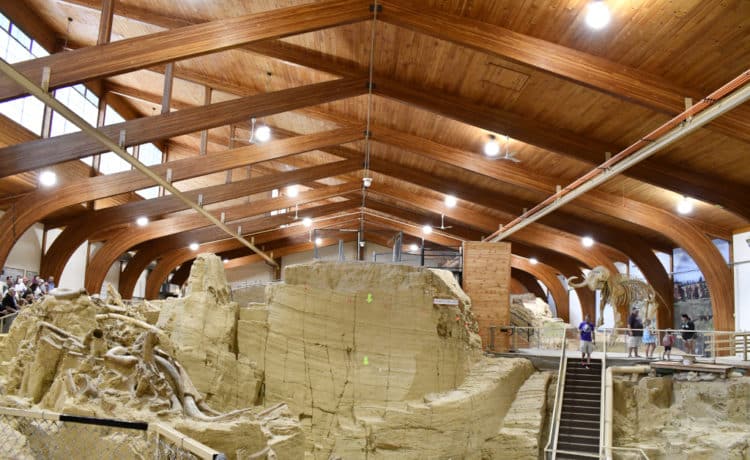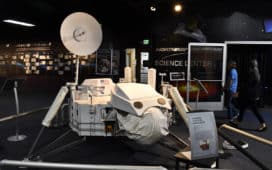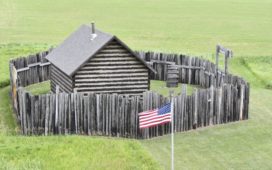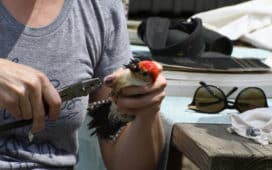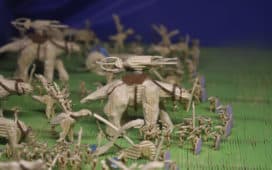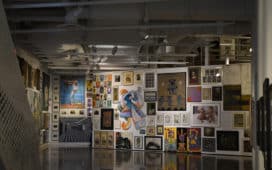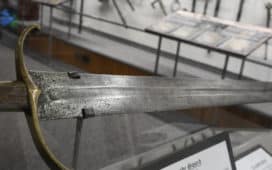How did a planned housing development end up becoming a National Natural Landmark? In 1974, a bulldozer operator was in the process of leveling a hill for the project when he hit something buried in the ground.
What he had uncovered, turned out to be the remains of many mammoths. Understanding the scientific value of the site, Phil Anderson sold the property at
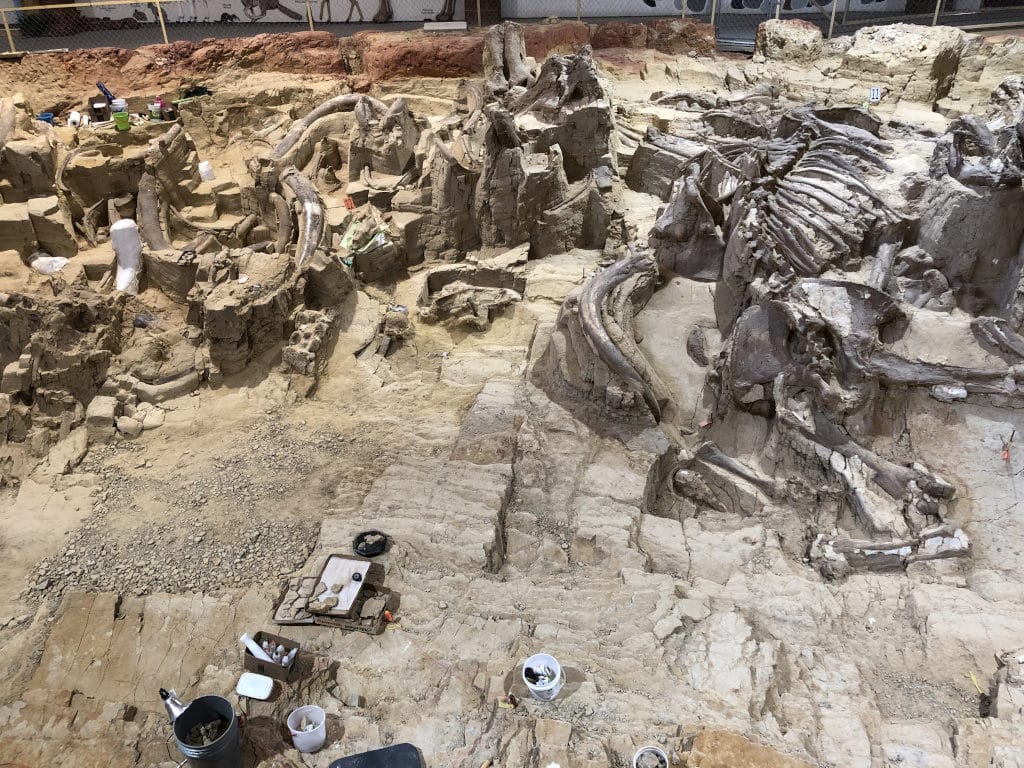
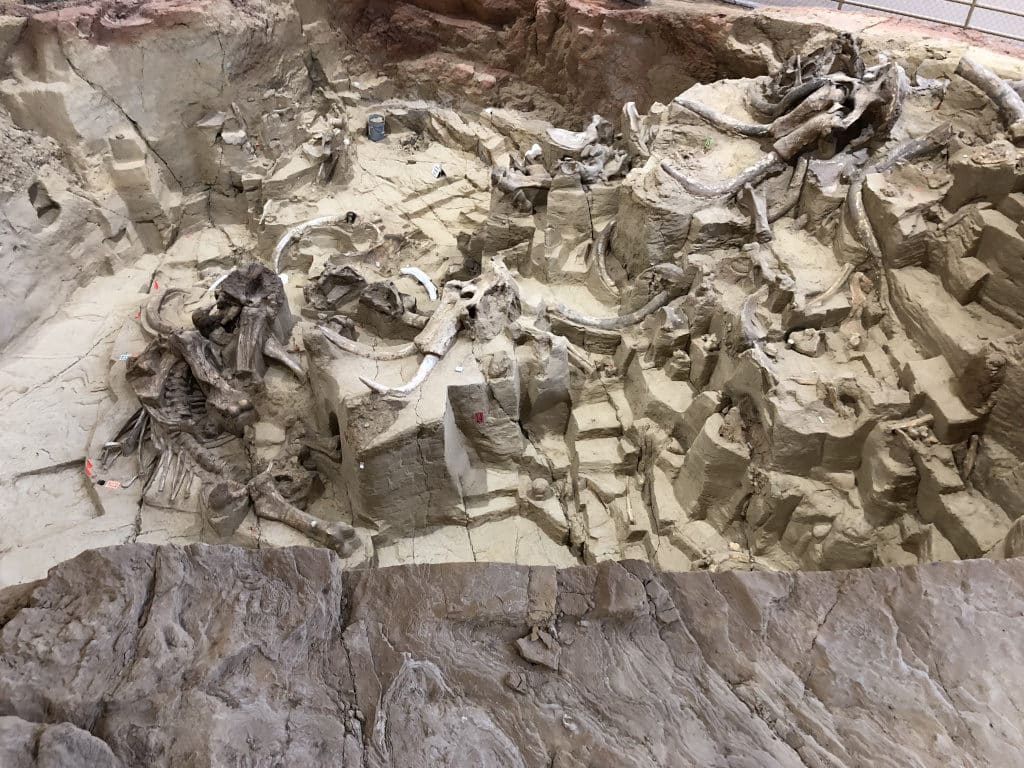
The Bonebed
While the team has visited multiple museums with various dinosaurs displays, seeing the Bonebed for the first time was an eye-opening experience. Not only due to the size, but because of the number of visible specimens. The site has uncovered sixty-one mammoths to date.
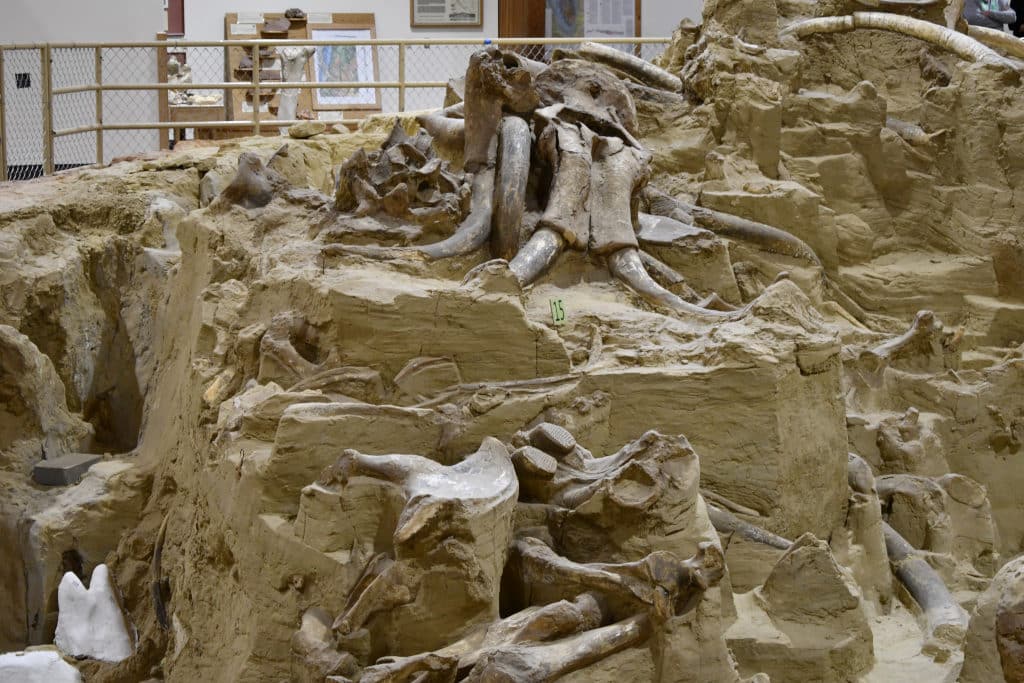
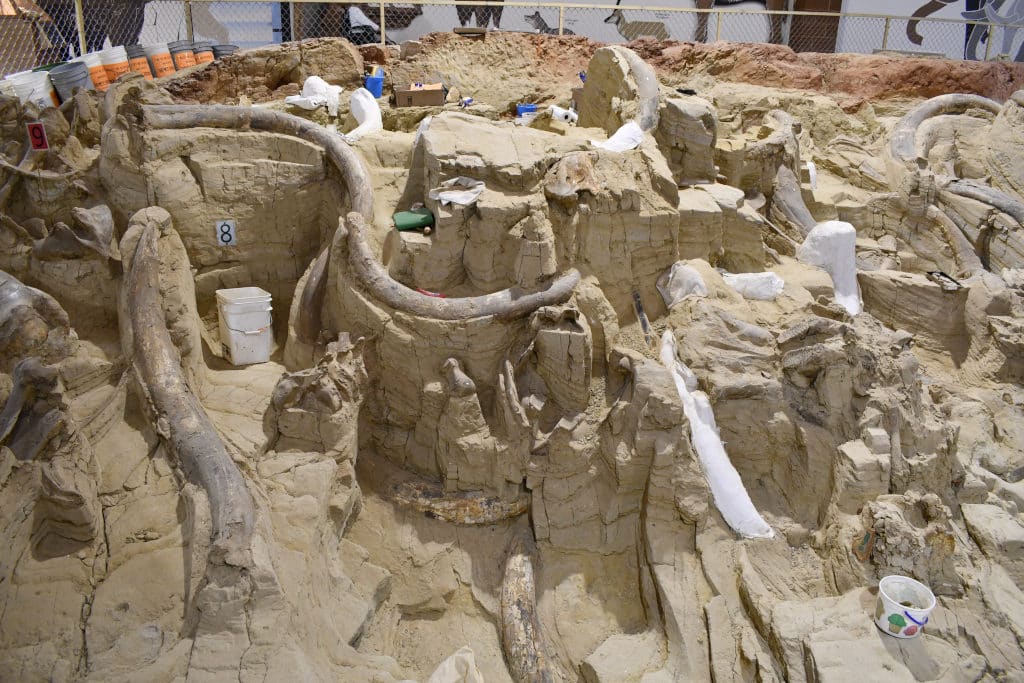
Active dig site!
You may have noticed various tools and buckets in the images that you would not see in a typical static exhibit at a museum, that is because of the members of The Mammoth Site Excavation and Preservation Program and Road Scholars Program actively dig at this site. Digging is only conducted for a few months each year; the rest of the time is spent sorting, identifying, preserving, and cataloging the fossils.
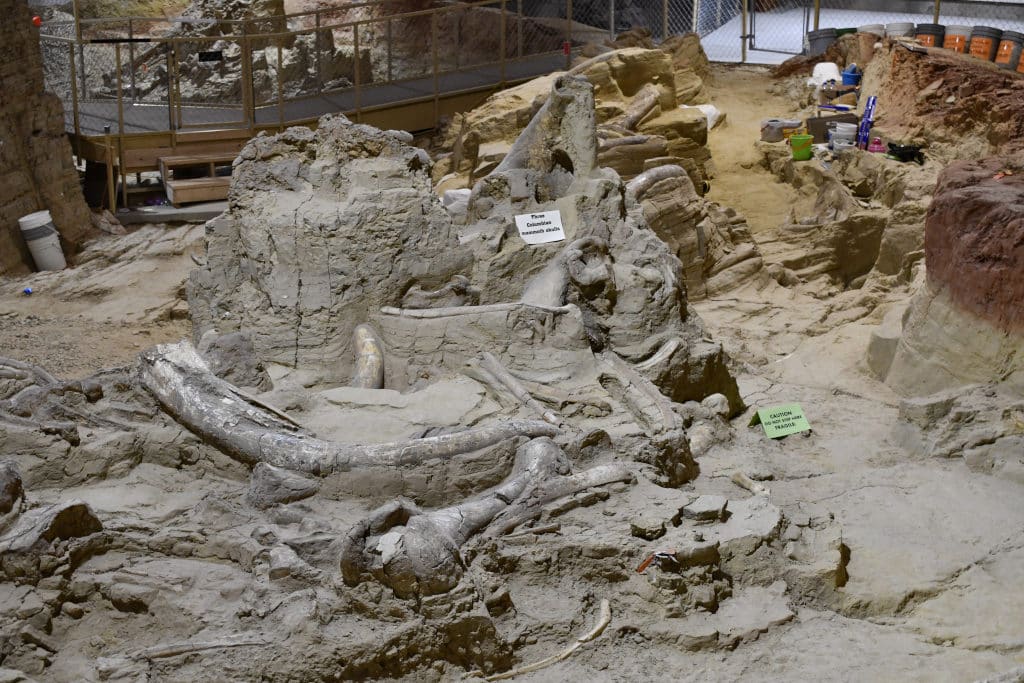
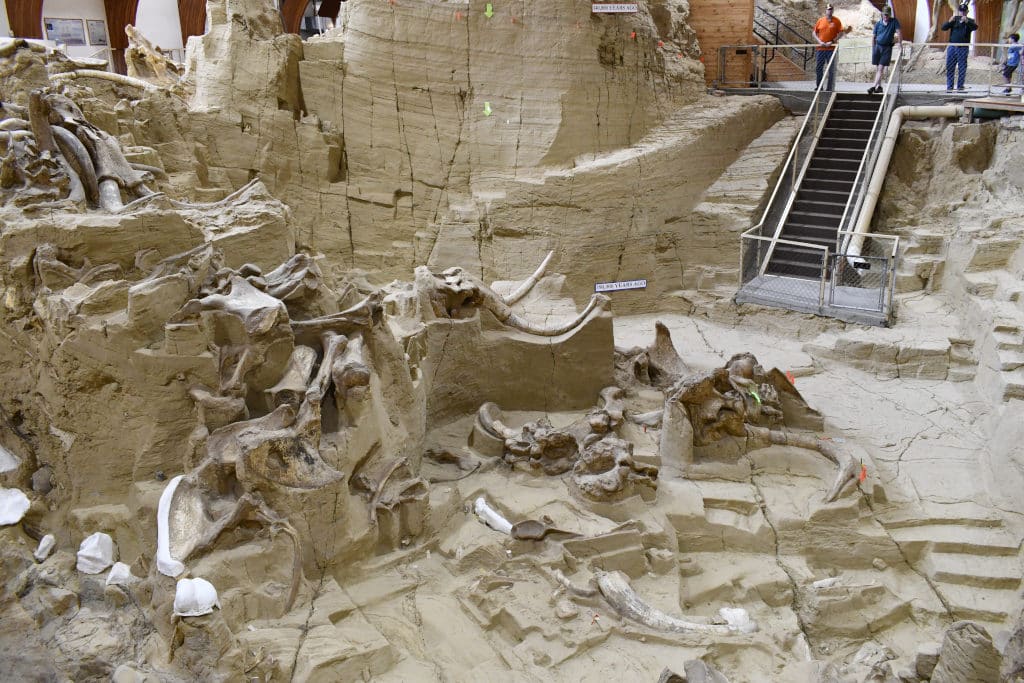
So many layers…
Throughout the site, it is interesting to see how many layers of sediment accumulated on the sides of the pit, offering a geological snapshot of thousands of years. The team had some fun discussions about how many additional layers of mammoths remain undiscovered, with some wondering if there will be more than one hundred total found!
Whatever the final count is, this site has already claimed the title for the largest concentration of mammoth remains on the planet. More important than the title, for our team, it has earned a place on our schedule for a future visit in a few years to see how the site evolves with advances in technology, especially with the 3d imaging and printing.
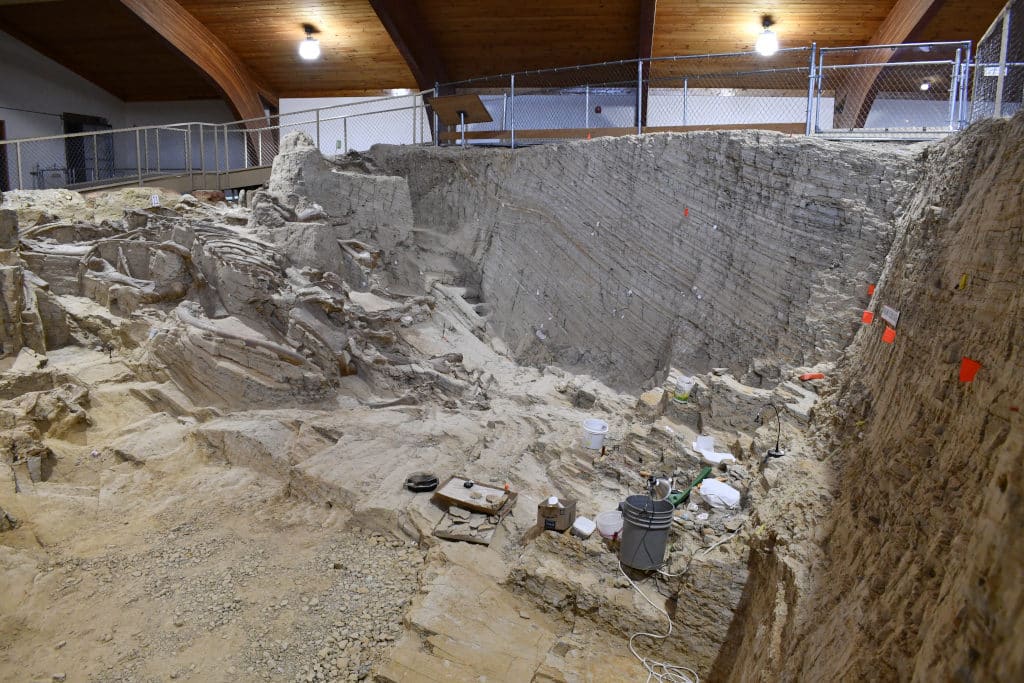
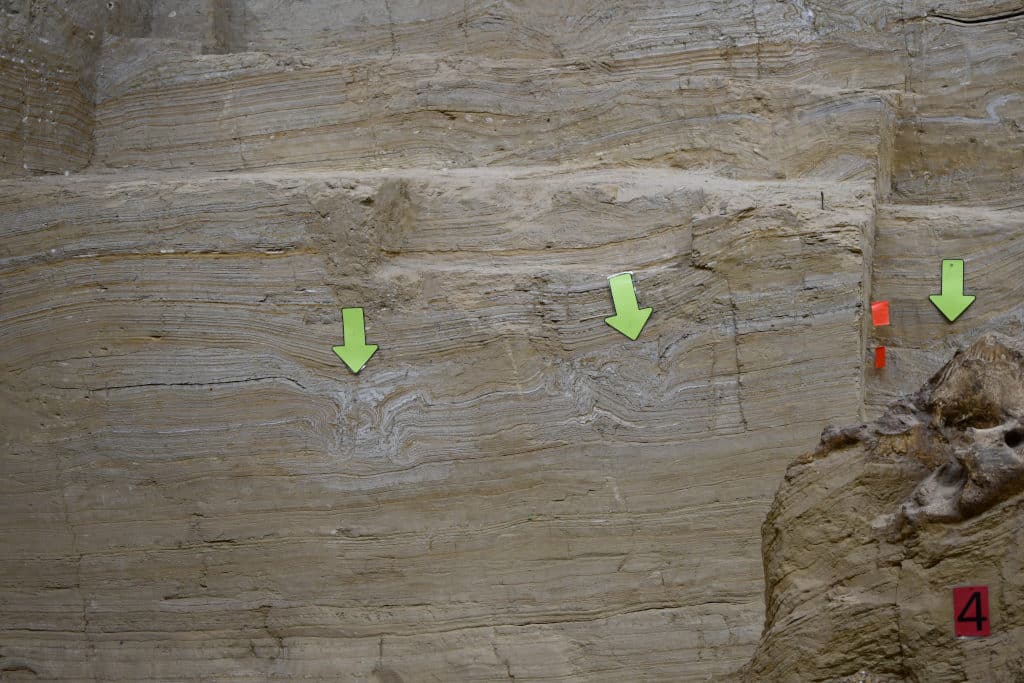
Advanced Paleontology Program
When your family starts planning road trips for next summer, make sure you book early to get into one of the Paleontologist Excavation Program. Learning the tools, methodology, and skills used by paleontologists was the most memorable part of this trip, mostly because it was 100% hands-on learning.
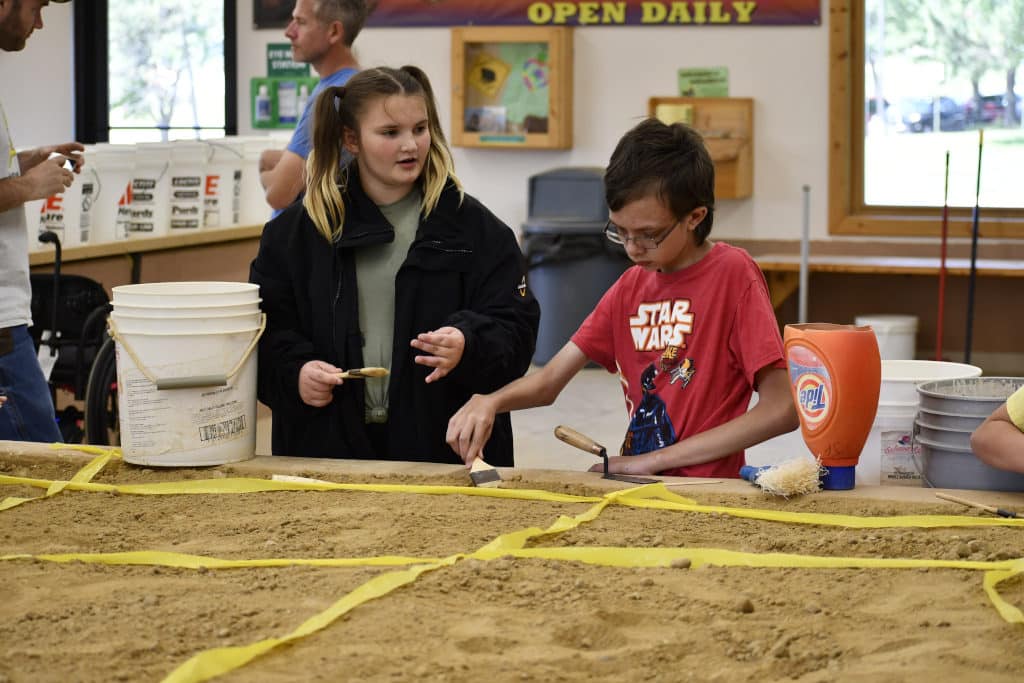
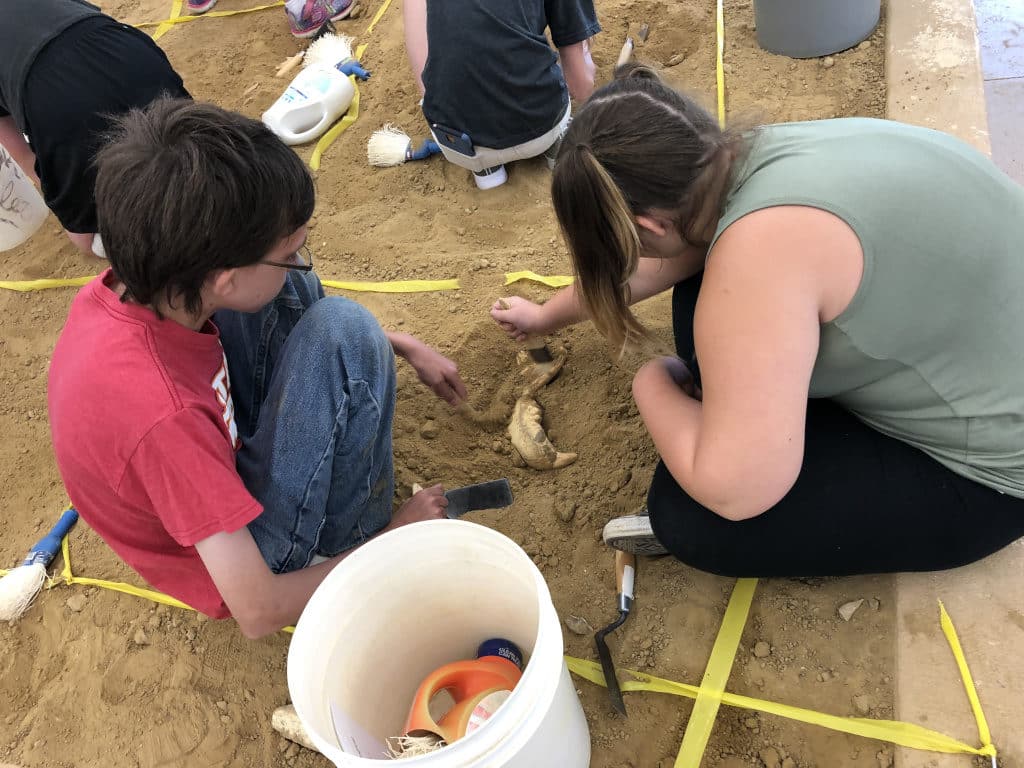
Shout out!
We wanted to give a special shout out to Bethany Cook; she was very accommodating in assisting our team with any questions about our visit to The Mammoth Site. Her assistance was much appreciated, and the kids benefited substantially by the information she helped provide during our trip prep.

